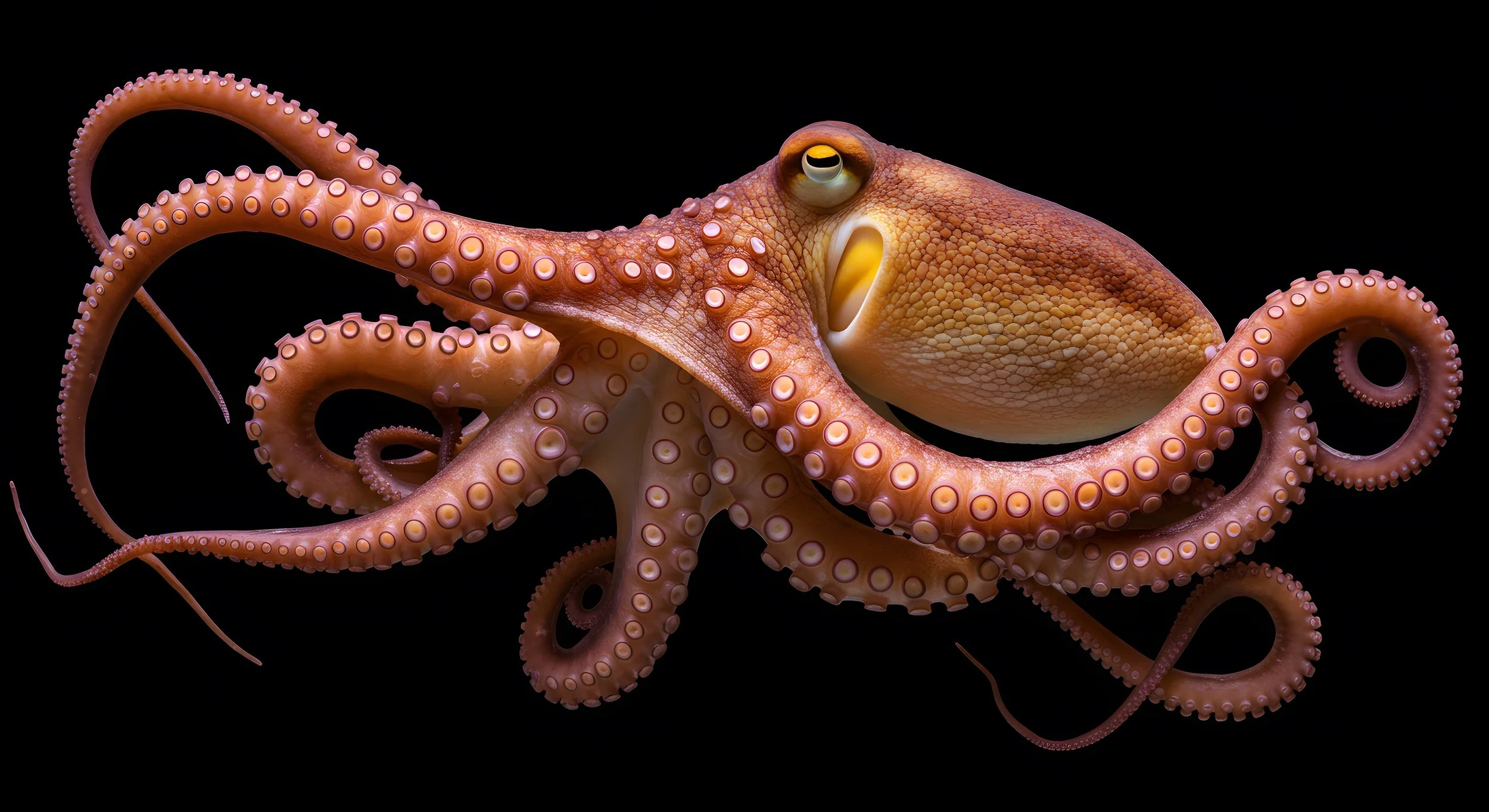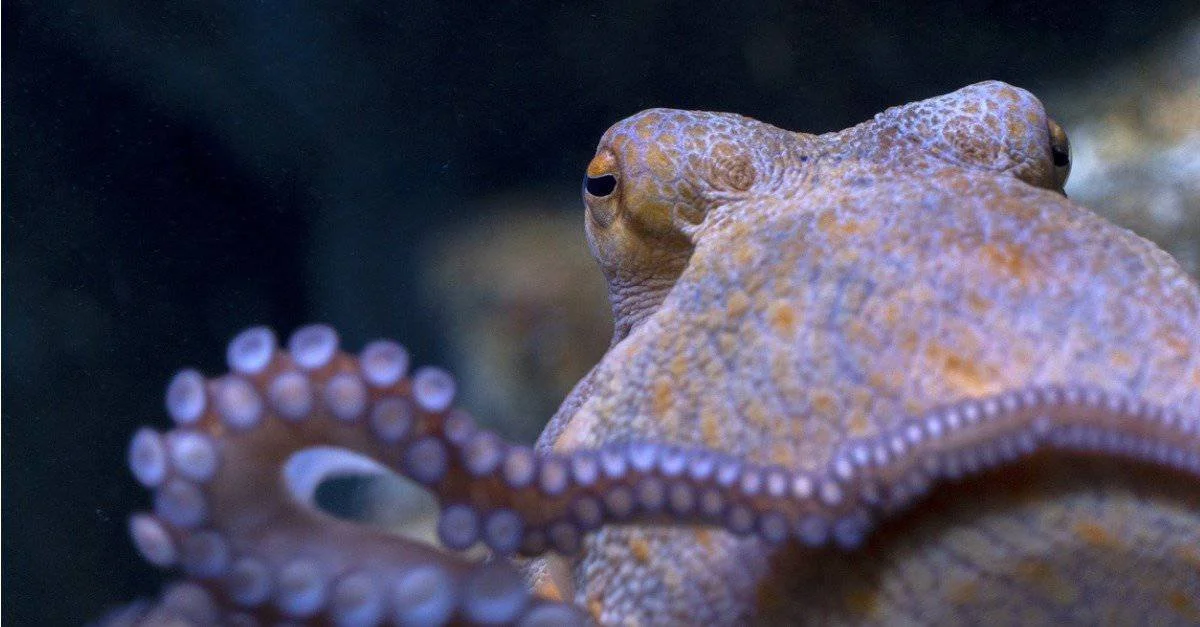OCTOPUS
Ten Wild Facts About Octopuses
Smithsonian Magazine
By: Rachel Nuwer
Video: Adobe Stock
In History of Animals, written around 350 B.C.E., the Greek philosopher claimed, “The octopus is a stupid creature, for it will approach a man’s hand if it be lowered in the water; but it is neat and thrifty in its habits: that is, it lays up stores in its nest, and, after eating up all that is eatable, it ejects the shells and sheaths of crabs and shellfish, and the skeletons of little fishes.” After describing a few more quirks of octopus life—it releases ink for self-defense, it’s slimy, it can crawl on land—he signs off with a flippant burn on the octopus’ phylum “So much for the mollusca.”
Aristotle’s dismissal has since been proved wrong. Octopuses have big brains for their size, and they’re able to figure things out, like how to open a clamshell that’s been wired shut. They can navigate mazes, solve problems, remember solutions and take things apart for fun. Octopuses even have distinct personalities, as explored in the Oscar-winning documentary My Octopus Teacher. Finally, the cephalopods play—in one instance, by conducting a pseudo-game of catch with a floating bottle.
What is the intelligence of an Octopus?
PBS Series - Octopus: Making Contact
By: David Scheel
“Octopuses followed a different evolutionary path, making them different from all other intelligent animals on this planet,” said David Scheel. “I am less intrigued by the differences and more interested in our similarities. What kind of a connection is possible with an animal that has three hearts and blue blood running through its veins? It’s been a privilege to have a relationship with such a strange and wonderful creature.”
Octopus Dreaming
“Last night I witnessed something I've never seen recorded before. You know if she is dreaming, this is a dramatic moment. You could almost just narrate the body changes. And narrate the dream…”
Traveling Home
“Our understanding of octopus intelligence took another leap forward, when in Indonesia, in 2009, researchers reported a veined octopus doing something truly remarkable. It was discovery that would put our understanding of the octopus onto a new level of sentience occupied by only a few species of animals…”
National Geographic - Masterminds: Secrets of the Octopus
Smithsonian Magazine
By: Rachel Nuwer
Video: Ольга Кожина
They Have Three Hearts, Big Brains and Blue Blood
These bizarre creatures have been around for hundreds of millions of years, and for humans, they’ve inspired horror, admiration…
“If you're an octopus, Mather says, "you'd better be smart, because there's a lot out there to eat and a lot that would like to eat you."
American Psychological Association
By studying the octopus, cognitive psychologists are uncovering clues to how thinking evolved.
- By Lea Winerman
Lea Winerman and her colleagues, including Anderson, conducted a three-year study on the island of Bonaire, off the coast of Venezuela, in which she kept a record of octopuses' diets in the wild. She found that they ate more than 90 different species, including clams, conch and crabs--each of which required a different strategy to capture. Meanwhile, dozens of species were trying to eat the octopuses, and each required a different strategy to evade.
Octopus intelligence also seems to be uniquely suited to its environment. They learn quickly, but they have short memories for food location.
To survive in the deep ocean, octopuses’ blood is powered by a copper-containing protein called hemocyanin, instead of the more common, iron-based hemoglobin in human blood. Whereas our iron-rich blood is red when it meets oxygen, the copper in octopus blood makes it appear blue. Hemocyanin, a bigger protein, transports oxygen more efficiently in the extreme environments inhabited by octopuses: At the bottom of the ocean, water temperatures are very low, and there isn’t much oxygen around. Unfortunately, octopuses’ blood also causes them to be extremely sensitive to changes in acidity. If the surrounding water’s pH dips too low, the animals can’t circulate enough oxygen to survive. Accordingly, researchers worry about what will happen to octopuses as climate change increases the ocean’s acidity.
Cuddlefish, closest cousin to the Octopus
Baby Cephalopods’ First Moments
“Their color-changing cells start flashing while they're still in the egg. Three types of cells with neural control make color change almost instantaneous. These young pajama squid use this to produce their signature striped pattern. But there is one cephalopod that is the master. Just a few centimeters long, these baby flamboyant cuttles can beguile anyone with a shape shift that is out of this world.”
by Blue Planet II - BBC Earth
Location 00:36:53
Cuttlefish Mimics Being Female to Mate
“It seems a small male wouldn’t stand a chance…he’s going to have to use trickery. He tones down his colors and tucks in his arms. He’s just the right size to mimick a female.
And on another note:
Clownfish Teamwork
by Blue Planet II - BBC Earth
00:26:27 Amazing Clownfish Teamwork
If you found these articles interesting, check back for another edition in this series. Please "like" our social media pages to be notified.
Advertisements
Tusk's approach to conservation recognizes that the long term future for wildlife and Africa's other natural resources is dependent on sustainable rural development. more... Tusk believes that if conservation is to succeed and environmental degradation to be reversed then education needs to be promoted at an early age.









